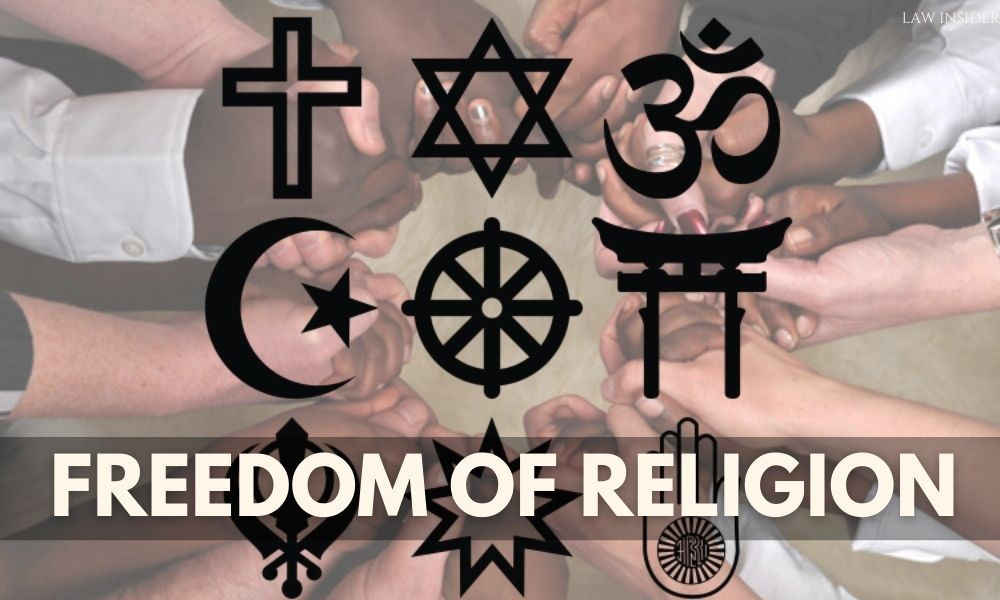Description

Copyright infringement not intended
Context - The Madras High Court has decided to hear a petition against the State government's order to frame guidelines against religious conversion in schools
Details
- The Madras High Court has decided to hear a PIL against the state government’s order to frame guidelines against religious conversion in schools.
- The judge highlighted that the Indian Constitution provides a right to profess any religion but not to forcibly convert a person from one religion to another.
Constitutional Articles related to Freedom of Religion
- Article 25 says that all persons are equally entitled to freedom of conscience and the right to freely profess, practice and propagate religion.
- Freedom of conscience: Inner freedom of an individual to frame his relation with God or Creatures in whatever way he desires.
- Right to Profess Declaration of one’s religious beliefs and faith openly and freely.
- Right to Practice: Performance of religious worship, rituals, ceremonies and exhibition of beliefs and ideas.
- Right to Propagate: Transmission and promotion of one’s religious beliefs to others. But, it does not include a right to convert another person to one’s religion.
- Article 25 covers religious beliefs and also religious practices (rituals).
- Article 26: Freedom to Manage Religious Affairs, every religious denomination or any of its sections shall have the following rights:
- Right to establish and maintain institutions for religious and charitable purposes.
- Right to manage its affairs in matters of religion.
- Right to own and acquire movable and immovable property.
- Right to administer such property under the law.
- Article 27 - Freedom from Taxation for Promotion of a Religion
- No person shall be forced to pay any taxes for the promotion or maintenance of any particular religion or religious denomination.
- The State should not spend the public money collected by way of tax for the promotion or maintenance of any particular religion.
- This provision prohibits the State from favouring and supporting one religion over the other. This also means that the taxes can be used for the promotion or maintenance of all religions.
- This provision prohibits only the levy of a tax and not a fee.
- Article 28 - Freedom from Attending Religious Instruction
- No religious instruction shall be provided in any educational institution wholly maintained out of State funds.
- No person attending any educational institution recognised by the State or receiving aid out of State funds shall be required to attend any religious instruction or worship in that institution without his consent.
- Article 29 - Protection of Interests of Minorities
- It provides that any section of the citizens residing in any part of India having a distinct language, script or culture of its own, shall have the right to conserve the same.
- No citizen shall be denied admission into any educational institution maintained by the State or receiving aid out of State funds on grounds only of religion, race, caste, or language.
- These rights are subject to public order, morality, health and other provisions relating to fundamental rights.
- The State is permitted to regulate or restrict any economic, financial, political or other secular activity associated with religious practice.
https://epaper.thehindu.com/Home/ShareArticle?OrgId=GUF9PIVMV.1&imageview=0
















